How one XCOM mod spawned a development studio
The story and legacy of the XCOM: Enemy Unknown Long War mod.
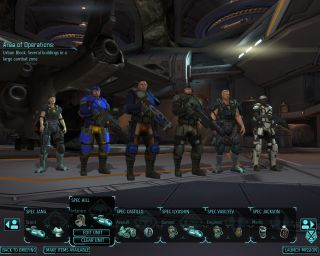
“Last September, I went to the Firaxis offices when they were in the fairly late stages of polishing XCOM 2. I met Jake Solomon there and showed him what XCOM: Enemy Unknown modding looked like. He wondered aloud if I had closets full of chains and leather.”
John Lumpkin, otherwise known as JohnnyLump, is the co-creator of XCOM: Enemy Unknown’s ultra-difficult Long War—a mod that adds a slew of surplus stats, extra weapons, more campaign missions, more challenges, more squad members and, inevitably, more death to the original game. To those those uninitiated, Jake Solomon—Enemy Unknown’s creative director—once described Firaxis’ official top-selling reimagining of Julian Gollop’s 1994 turn-based classic as a “20-hour tutorial” for Long War, which gives a sense of how comprehensive Lumpkin and partner Rachel Norman’s hobbyist modification is.
Lumpkin tells me that he in fact doesn’t keep a cupboard-full of S&M accessories at home—“not that there’s anything wrong with that”—but that Solomon’s tongue-in-cheek reference points to how inaccessible Enemy Unknown is to would-be modders. First you’re required to essentially hack into the game’s files to make it read INI files, Lumpkin says. Then you need to review the game’s code, translate it into hexadecimal, before making changes to functions and classes so as to ensure your alterations don’t crash the game. Lumpkin pauses, as if suddenly aware of how confusing this might sound to those unfamiliar with programming jargon.
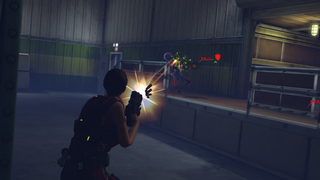
“It’s strange,” he says. “I had 12 hours of computer science in college, my training was primarily as a journalist, but it gets to the point where—you know the scene in The Matrix where Neo is looking at the code falling? You get to that point where you can start reading the code and you can see the Unreal script that it makes. It’s a weird place for your head to get to but it can get there.”
Getting there saw Lumpkin sinking two to three hours a day into his pet project as a distraction from studying at grad school—“media studies with a side of political science and international relations”—back in 2012. He’d often have to “force” himself to pursue his dissertation, and admits partner Norman, when away from her job working in the US defence industry, almost certainly spent more time on the coding side of things as the project’s engineer.
Although inspired by UFO: Enemy Unknown (XCOM: UFO Defense in the US)—at 43 and 42 respectively, both Lumpkin and Norman are self-proclaimed “veterans of the old days”—the idea for Long War was born from the simple fact that Lumpkin had finished the 2012 remake, wanted more, but couldn’t find anything user-made in the game’s small but growing community. He took matters into his own hands and, with the help of Norman, began to push the envelope on what was possible.
“It kind of grew organically but as we figured out how to do something like how to add new weapons or how to have aliens upgrade themselves, we’d add these new capabilities and release a new version,” says Lumpkin. “The Enemy Unknown campaign was 35 or 40 missions and I had a great time playing it—and then it was over. I wanted more of the feel of warfare in terms of these great victories but also reversals that you have to address.
PC Gamer Newsletter
Sign up to get the best content of the week, and great gaming deals, as picked by the editors.
“If you think of American sports—we have NFL football here, where it’s a 16-game season and every game is a big deal that have huge effects on your season. I wanted to switch that to make it a bit more like baseball, which has 160-odd games in a season and is much more about performance over the long term and statistics. I always thought of what we did to XCOM a little like that—Enemy Unknown was the football season and we made it more like the baseball season with ups and downs and variety of challenges.”
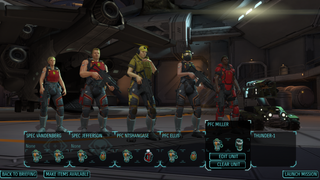
Before long, the ever-burgeoning Enemy Unknown community began to take notice of Long War. A healthy body of “brave players” had started playing, offering feedback and in essence became Lumpkin and Norman’s QA team. Beta versions received tens of thousands of Nexus downloads courtesy of its barrel-load of new stuff, and it was discussed favourably by the games press. “One of my real pleasures from all of this was going on Reddit or the Nexus feedback and watching people debate strategy in a real productive way,” adds Lumpkin. “There was nothing toxic about it, these were people having these really interesting discussions and it was so fun to read.”
About mid-way through development, Jake Solomon started tweeting about his enjoyment of Long War. Julian Gollop praised the unofficial expansion during presentations. Eventually, first contact was made with Firaxis by way of its community manager Kevin Schultz. “One of the things players wanted was soldiers not to sound like they’re from Iowa,” says Lumpkin, before explaining Jonathan Emmett, the mod’s sound editor, had just figured out how to implement new voice packs.
They had enlisted volunteer voice actors from the UK, Australia, and the US, and had turned character Peter Van Doorn—who appears briefly in Enemy Unknown with a “great gung-ho delivery of his lines”—into a soldier that could be added to the game. “Schultz reached out and said: ‘hey, we’ve got some leftover lines from that voice actor, do you want them?’ We said, you bet, and were able to make a custom voice pack for this particular character.”
By early 2015, the Long War team had grown to a small core group of four, as well as four senior contributors, and, behind the scenes, Firaxis had begun work on XCOM 2—a direct follow-up to 2012’s Enemy Unknown that would make modding a priority by boasting day one mods and Steam Workshop support from launch. It was looking for help in this area, therefore publisher 2K reached out to Lumpkin, put him and his team under NDA and asked that they take the helm of three day one mods.
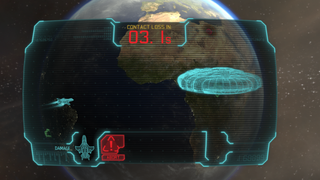
While working towards Long War 1.0, Lumpkin had also begun flirting with the idea of creating his own game—Terra Invicta: another alien invasion-inspired game on a strategic level, that he planned to crowdfund down the line. He was, however, delighted to receive official recognition. What’s more, this was immediate paying work. It was a chance to see all the procedures and processes involved in how a game is made, and to learn about proper QA and all of the different roles. In short: this was the Long War team’s education.
In August 2015, Long War Studios was formed, it brought on an artist—“adding art to Enemy Unknown was very difficult,” Lumpkin recalls—and set about crafting the agreed XCOM 2 day one mods, while working on Long War’s final release in the background. The latter launched its version 1.0 last December, while Long War’s first batch of XCOM 2 mods went live on launch day; with a second and third lot releasing in April and July too.
“We had this big list of ideas and had a bit of a back and forth with them,” explains Lumpkin when I ask if Long War’s creative freedom was sacrificed in this new, non-hobbyist setup. “We asked what they wanted and they suggested the kind of things they were after for these day one mods. We threw some specifics at them and they thought it sounded great. If there was any freedom sacrificed on the creative side it was more to do with things like deadlines than it was us being told what to do.
“They wanted to show off these modding tools, and we were conscious of that therefore came up with things that showed off different kinds of things you could do within the time frame that we had. There’s an approval process, of course and a bit of further back and forth.”
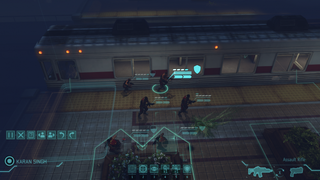
To this day, there are still but a few hundred mods available for XCOM: Enemy Unknown, not to mention no Steam Workshop support. XCOM 2’s Steam Workshop, however, boasts 1,994 at the time of writing—testament to how more accessible this game is to prospective modders of all levels. Long War Studios still plans to pursue Terra Invicta down the line, something which seems a certainty now off the back of the Long War mod’s reception, and what the team has learned from its work on XCOM 2.
I therefore ask Lumpkin if we can expect a Long War 2 mod for XCOM 2 at any point in the future.
“We certainly know how we’d do it,” he says before pausing. “And that’s probably the most I can say right now.”
Most Popular

